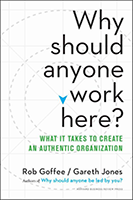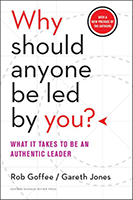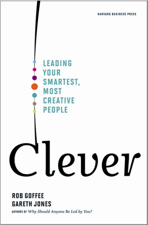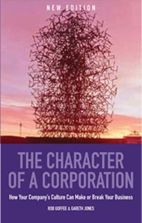What we say...
-
3 Critical Skills to Teach in Leadership Training
Sunday 1st September 2019
-
Leadership, Change and Uncertainty
Friday 6th April 2018
-
What does the Oxfam scandal tell us about organisations
Friday 23rd February 2018
-
I look forward to speaking at The HR Congress
Tuesday 31st October 2017
-
Why should anyone work here - Animation
Friday 11th December 2015
Volkswagen and the End of Corporate Spin
The shockwaves emanating from Wolfsburg, Germany, continue. Thousands of individuals that work for VW, their families and their community are angry, dismayed and fearful. They are incredulous that an immensely successful company, in which many have invested their entire working lives, could have engaged in such large scale, systemic deceit. And millions of customers around the world also feel cheated.
And the story will go on and on, as VW decides how to handle this unfolding drama – in particular, when it comes to deciding which and how much information it is prepared to share. These decisions will be critical in its attempts to regain trust.
Is VW the only car manufacturer guilty of such transgressions? They are certainly not the first company to be severely embarrassed by information disclosures either coming too late or not at all – with grave consequences for reputation, brand, and shareholder value. Think GM and faulty ignition switches; BP and the Gulf of Mexico; Starbucks, Google and Amazon and UK corporate tax avoidance; Tesco and horsemeat; Enron and Arthur Andersen. The list goes on.
During the course of research for our new book on what it takes to create authentic organizations, we saw over and over that the most admired organizations don’t do “spin.” Time and again, the people we talked to about authentic organizations told us that the old world of corporate secrets is over, and that organizations are still trying to catch up to this reality.
There are complex social, political, and technological reasons for this dramatic change. At the social level, two phenomena coincide. First, the decline of public trust in organizations and second, the marked decline in levels of deference to authority. Politically, legislators have responded to these social changes by instituting wide-reaching “freedom of information acts” which, for all their inadequacies have dramatically changed the information landscape. At the technological level, the explosion of the Internet and social media has made the world more transparent, and has meant that organizations in both the public and private spheres are being forced to face new information-sharing challenges.
The old practice of “covering up” no longer works. Spin backfires. The breadth and depth of information available today has created a more knowledgeable public, less easily swayed by public relations efforts.
In such a world, it would seem almost quaint to say that organizations should be honest. But the inexorably increasing transparency makes it imperative to do so. So why aren’t all companies more open in their communication? Because, despite the transformation of the information landscape, the barriers to candid, complete, clear, and timely communication remain legion. Some executives feel an obligation to put a positive spin on negative events out of loyalty to the organization. Other managers see parcelling out information on a need-to-know basis as an operational maxim, important to maintaining efficiency. Still others practice a seemingly benign type of paternalism, reluctant to “worry” staff with certain information or to communicate with the group about a problem before having a solution to suggest.
But this won’t do – not any more. Clearly there will always be information which is competitively sensitive but as Google Chairman Eric Schmidt has recently suggested, the default mode should be to share everything – only holding back that which is restricted by law or regulation.
In this new environment, organizations and their leaders need what we call radical honesty. This goes deeper than the modern injunction for organizational transparency. We characterize it as follows: it is proactive rather than reactive; it is speedy; it surprises people with its candor; it encourages dissent; and finally, it means engaging with employees and with a wide group of stakeholders – shareholders, customers, suppliers, regulators and the wider society. We understand well that this can mean significant organizational culture change – it requires hard work, behavioral adjustment, consistent action, as well as free-flowing communication. But there is really no choice. In a transparent world, the truth – and the data – will out, and more than likely already are out. Therefore, leaders and managers must become compelling communicators, operating according to the following general guidelines:
Straight and soon. Get the story out honestly and quickly – always assume you have less time than you think.
Flood the zone. Use many channels – you need to connect with different kinds of stakeholders, different generations, genders, cultural backgrounds, with different communication habits.
Good, bad, and ugly. Encourage honest conversations about both hopes and fears. Remember that power relationships sanitize information that gets to the top. Ensure people can bring bad news, not just good.
Distill and simplify. Keep communication simple and relevant, don’t drown people in irrelevant data.
Repeat. Find ways to reiterate the message and build feedback loops. Remember that trust builds slowly and quickly fades once the message stops, or when people see or hear contrary data.
Novo Nordisk was an early convert to radical honesty. In response to its quality crisis in the 1990s, the pharma giant significantly adjusted its culture around clarity and communication. It has built radical honesty into its DNA. It uses a wide variety of channels to communicate with and listen to its various stakeholders – employees, customers, investors and the wider society. When the company decided to close down their research facility in California because it no longer fitted with the company’s strategy, Chief Executive Lars Rieben Sorenson flew to the facility, gathered the workforce and openly and honestly explained the reasons for the closure, the time scales involved and the ways in which Novo Nordisk would help people. The astonishing response from the employees: unanimous applause. This is what can happen when organizations replace a climate of secrecy and suspicion with radical honesty.
One problem for the organizational shift toward radical honesty is that many of the people who populate corporate communications offices – the traditional home of the spin machine – have acquired their skills in an earlier era of public relations, press offices, and government liaison posts. These valuable professionals see it as their duty to protect the organization from damaging information and to brand it as attractive to potential employees, to clients, and to investors. But their often habitual reliance on spin is in tension with the new world, in which the imperative is to tell the whole story, warts and all.
Freedom of information acts and social media have created a radically different world, in which reputational capital is more important and more fragile than ever before. In this world, radical honesty is no longer a luxury but a business necessity.
Credit: Harvard Business Review



